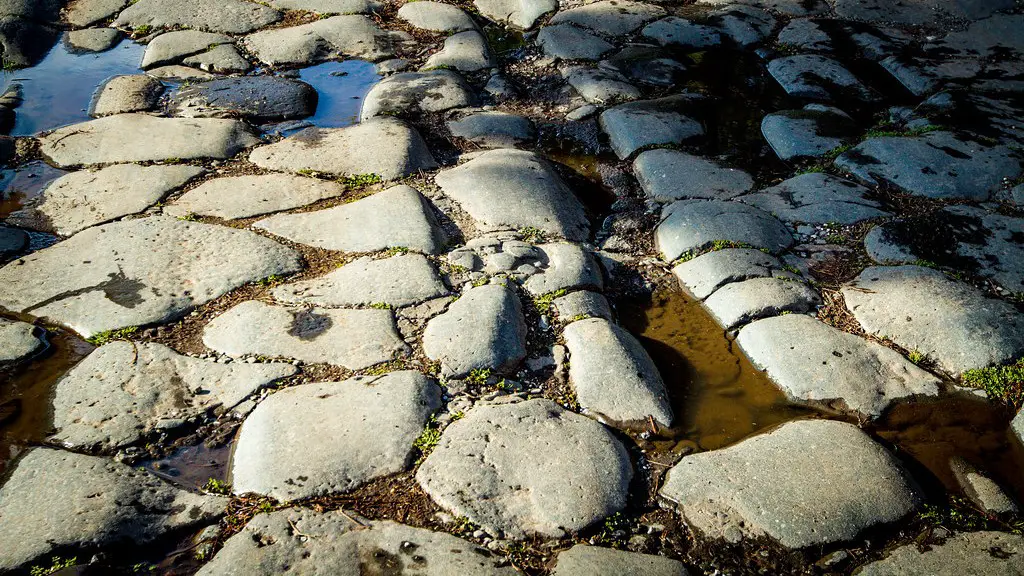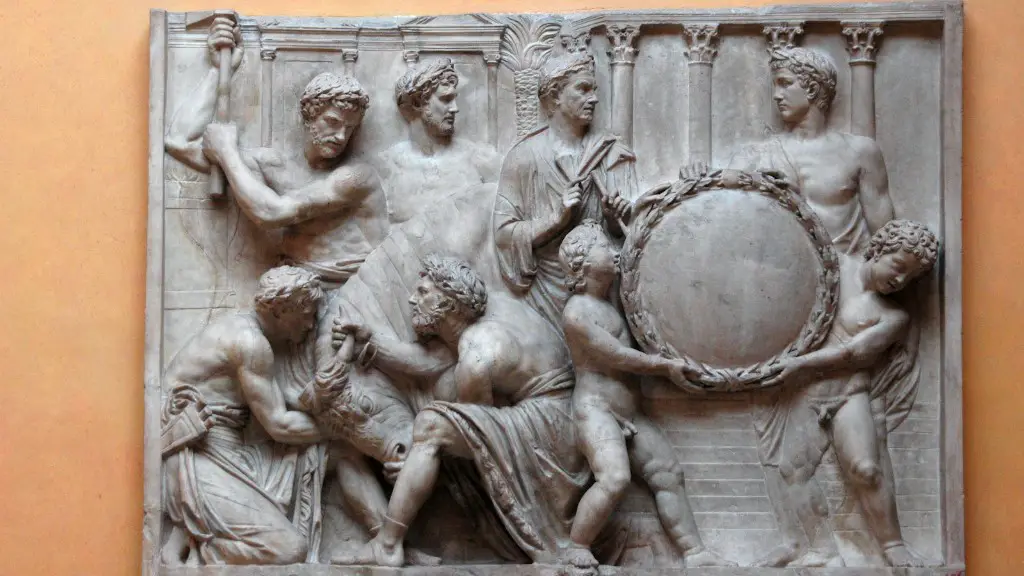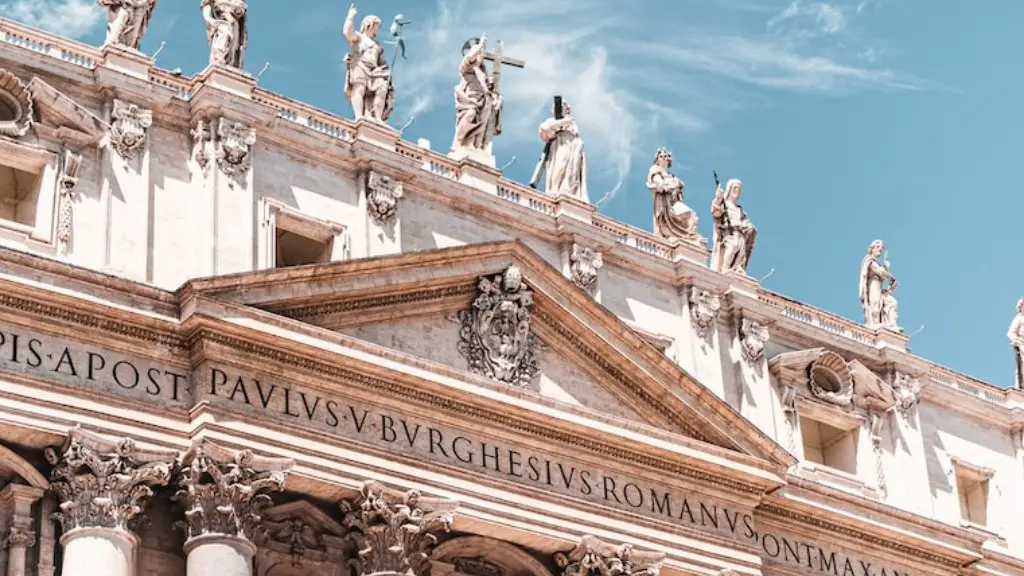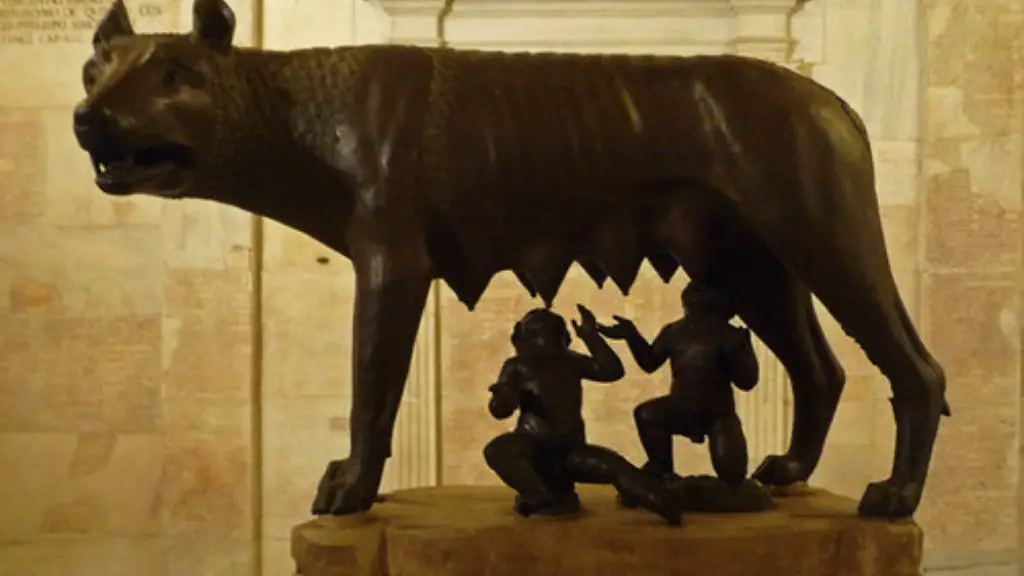Background Information
The plebs in Ancient Rome were the lower classes, and it was a distinct socio-economic group. This group was made up of urban labourers, freed slaves, unemployed citizens, foreigners and others in the lower social and economic order. Plebs were the largest group in Rome, and it is estimated that they made up over a third of the total population. While the upper classes held political power, the plebs had very limited rights and no real political power. They were also denied access to certain political offices.
Different Social Classes
The term ‘plebs’ was used to refer to the lower classes in Ancient Rome, while the higher social classes were referred to as ‘patricians’. There were also various other social classes such as freedmen, freedwomen, slaves and foreigners. The patrician social class was made up of upper-class citizens who had access to high-ranking political positions and were in possession of wealth and prestige.
Income Inequality
There was a great income inequality between the different social classes in Ancient Rome, with the patricians having considerable wealth and influence, while the plebs had to live in poverty and deprivation. The plebs often had to work in low-paying manual labor jobs and could not afford access to the same luxuries and privileges that the upper classes enjoyed. This resulted in much of the population living in poverty and facing the daily struggle for survival.
Political Power
The plebs had very limited political power in Ancient Rome and were denied access to certain political offices. This was despite the fact that they had created their own revolutionary movement in 494 BC, known as the ‘Plebeian Assembly’. In this assembly, the plebs were able to make political decisions, such as the election of magistrates. This resulted in the creation of a body of plebeian officials, known as the ‘Tribuni Plebis’, which gave the plebs the right to veto certain decisions made by the patricians.
Legislative Powers
The plebs had some legislative power in Ancient Rome. In 450 BC, they were able to pass the ‘Twelve Tables of Law’ which provided some protection to the rights of the plebs. The Twelve Tables also stated that all citizens had the right to appeal to the Plebeian Assembly if their legal rights had been violated. This gave the plebs some legal protection and provided them with a means of addressing grievances with the patrician class.
Trade and Commerce
In spite of their lack of political power and the general inequality between social classes, the plebs in Ancient Rome were able to take part in trade and commerce. The plebs engaged in the trade of various goods such as food, clothing and tools. They were also able to start small businesses such as taverns and shops. This allowed the plebs to improve their economic standing and gain access to some of the privileges that the upper classes enjoyed.
Land Reforms
The plebs in Ancient Rome were able to make some progress in improving their lives when the Lex Hortensia was passed in 287 BC. This law stated that all plebeian laws passed by the Plebeian Assembly had the same force as patrician laws. This meant that the plebs were no longer subject to the whims of the patrician class and were able to pass their own laws. This led to some land reforms which provided the plebs with access to previously unavailable land.
Conclusion of Power
The plebs in Ancient Rome did not have complete political or legal power and were still subject to the whims of the patrician class. However, they were able to make some progress in improving their lives by engaging in trade and commerce and by pushing for reforms such as the Lex Hortensia which granted them the right to pass their own laws. Despite the inequality between social classes, the plebs were able to rise up to create their own revolutionary movement, the Plebeian Assembly, which allowed them to make their voices heard and gave them some political power.
Opposition to Roman Rule
The plebs of Ancient Rome often struggled against the ruling patrician class, which oppressed them with taxes and restricted their access to certain rights. This growing discontent amongst the plebs lead to several rebellions throughout Rome’s history, including the ‘Great Slave Revolt’ of 73 BC, which was led by Spartacus and lasted for several years. The revolt ultimately ended in failure and was brutally suppressed, though it did lead to some reforms in the treatment of slaves in Rome.
Mentality of Struggles
The struggles of the plebs in Ancient Rome were often overshadowed by the accomplishments and conquests of the ruling patrician class. However, their plight and resilience should be remembered and appreciated, as they were an integral part of the Roman Empire and their struggle was an important element of Rome’s history. Though they were oppressed and lacked political power and certain rights, the plebs were able to find ways to make their voices heard and improve their lives.
Legacy
The legacy of the plebs in Ancient Rome is still felt today, as it is a reminder of the stark inequality between social classes in the Roman Empire and the oppression faced by the lower classes. It also serves as an inspiration for modern society, as it demonstrates that the lower classes are capable of resisting oppression and fighting for their rights and freedom. The legacy of the plebs is something that should not be forgotten, as it is an example of what is possible when people come together and fight for justice.
Social Mobility
One of the defining features of the plebs in Ancient Rome was the fact that they were able to move up the social hierarchy and improve their standing if they were able to take advantage of certain opportunities. For example, some successful merchants were able to gain wealth and ascend to the patrician class. The plebs also had access to certain educational opportunities and could access resources such as libraries, which allowed them to gain knowledge and further their education.
Importance in History
The plebs in Ancient Rome were an important part of the empire’s history. They fought for their rights and freedom and were able to make some progress in improving their lives. Their struggles should be remembered and appreciated, as they demonstrate the power of the human spirit in the face of adversity. The legacy of the plebs is still relevant today, and their story serves as a reminder of the inequality that exists between social classes and the need for people to come together and fight for justice.



